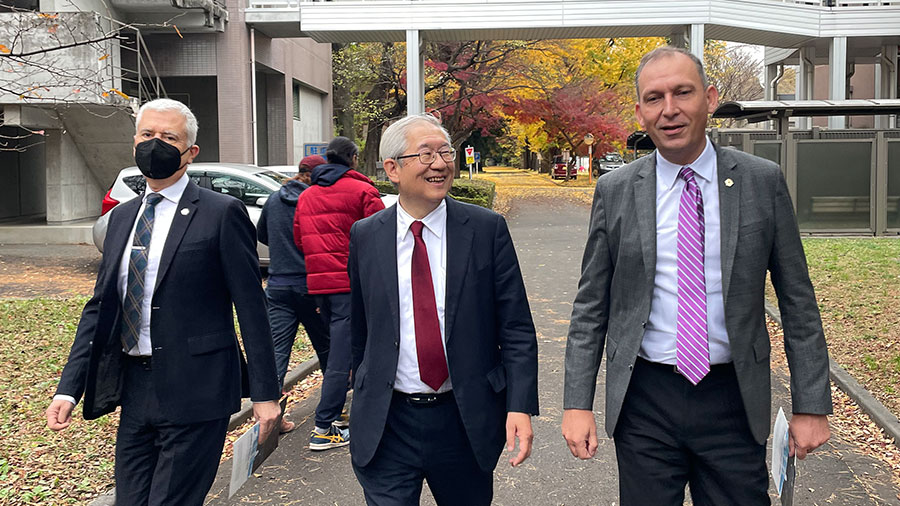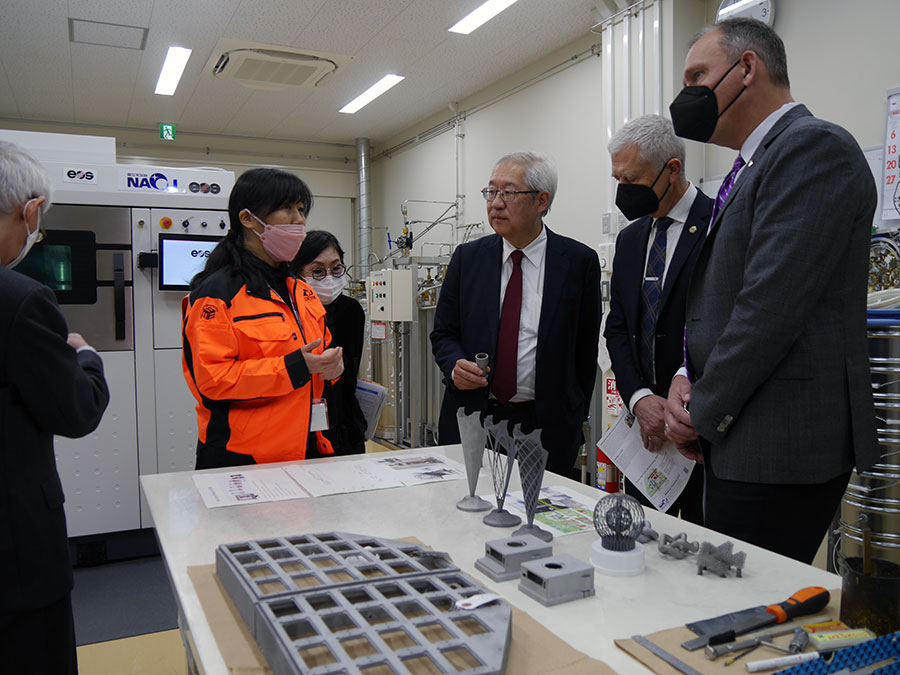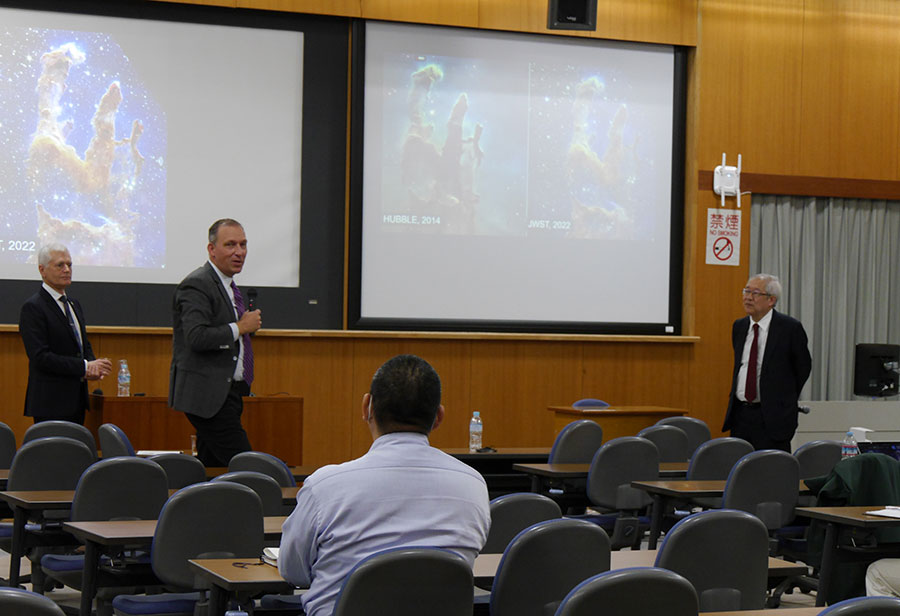NASA Associate Administrator Thomas Zurbuchen Visits NAOJ Mitaka Campus
| Topics

A delegation of NASA officials, including Associate Administrator for the Science Mission Directorate Thomas Zurbuchen and Astrophysics Division Director Mark Clampin, visited NAOJ Mitaka Campus on December 1, 2022.
Their first stop was the Advanced Technology Center where they earnestly inspected superconducting receivers and the facilities for manufacturing 3D printed parts for ALMA.
Then they listened intently to the explanation by Prof. Eiichiro Kokubo during a screening at the 4D2U theater. At a seminar held on the same day, Zurbuchen and Clampin provided a detailed explanation of the initial results from the James Webb Space Telescope. After that, they informally discussed a wide range of topics with the NAOJ Directorate including the development of the James Webb Space Telescope, the possibility of future Japan-America collaboration on space missions, and expectations for the TMT Project.

Zurbuchen specializes in Solar and heliospheric physics; space development; and satellite systems; and has written a report using Yohkoh. He has been involved in the NASA spacecrafts Ulysses, MESSENGER, and Advanced Composition Explorer (ACE). He is also the founding director of the Center for Entrepreneurship in the College of Engineering at the University of Michigan, providing entrepreneurial support to teachers and entrepreneurial education to students.
For nearly 40 years, the close collaboration between NASA and Japanese institutes has been producing remarkable results in X-ray astronomy, solar physics, and magnetospheric physics. As part of this, the three solar observation sounding rocket experiments in the “CLASP” mission series led by NAOJ has been praised as one of the most successful NASA sounding rocket experiments.
This NASA delegation visit to NAOJ was part of a very tightly scheduled visit to Japan, showing their dedication to international collaboration to advance ground-based and space-based astronomy research. This time’s visit was over too soon, but we hope it will serve as a basis for further cooperation.
